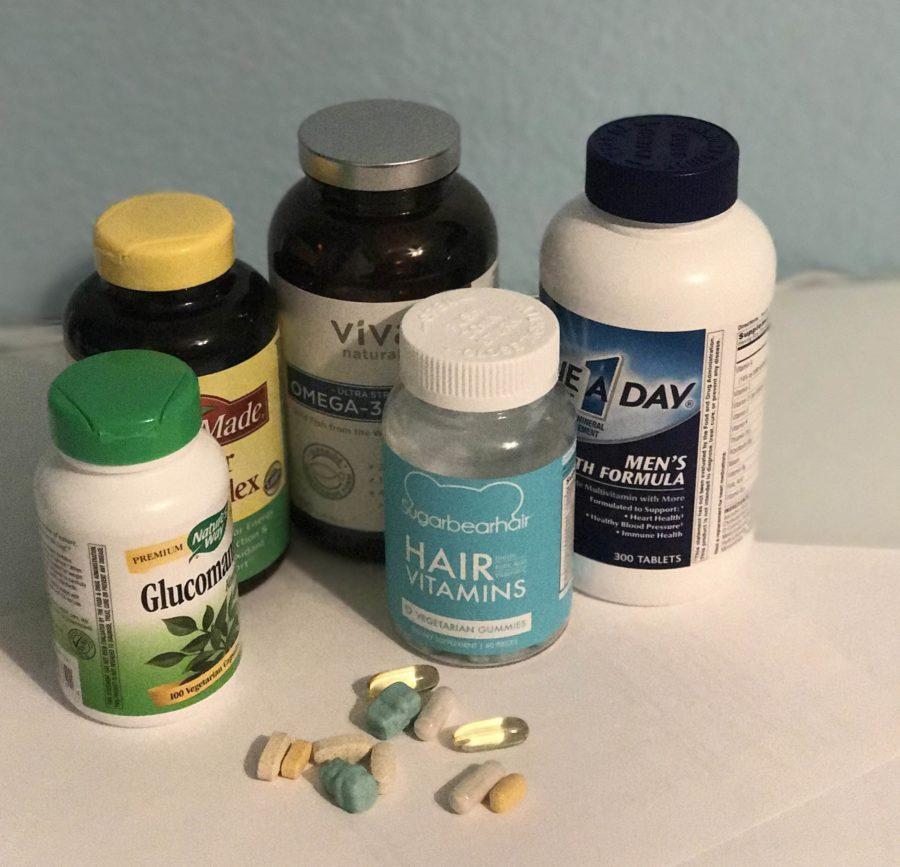Fruits or Flintstones?
Picture by Howard Tran
If you are anything like me, I am sure you remember taking gummy flavored multivitamins as a kid instead of eating your veggies. At that time, we were more concerned about the taste of our Chewable Flintstone tablets rather than the nutritional value behind them. However, we are now facing new concerns about multivitamins; do they harm our body? Recent studies show that multivitamins do more harm than good. Eating fruits and vegetables is better because they provide all natural ingredients, eliminate any chances of manufacturing errors, and are proven to be much healthier.
Prolonged deficiency in certain vitamins can lead to ill health. Vitamins are organic compounds and vital nutritional supplements for the human body. Vitamin C, for example, promotes healing and helps the body absorb iron, which is important for your skin, bones, and connective tissues. It can be naturally found in oranges, tomatoes, red peppers, and broccoli. Vitamin D is essential for growth and development of the bones and can be found in egg yolks and fish. Vitamin D deficiencies may cause hypocalcemic seizures, growth disturbance, diabetes, and cancer.
Flinstone Vitamins and other vitamins offer biotin, folic acid, niacin, pantothenic acid, riboflavin, thiamine, Vitamin A, Vitamin B, Vitamin C, Vitamin D, and Vitamin E in easy-to-chew and delicious capsules. With all those seemingly beneficial ingredients, why bother eating your disgusting veggies?
Dietary supplements, however, are prone to manufacturing errors. According to Kaiser Permanente, “[in] 55 bottles of over-the-counter vitamin D supplements, the amount of vitamin D in the tablets varied from 9 to 146 percent of what was listed on the bottle. That also varied widely from pill to pill in the same bottle.” While this may not seem like a big deal, overdose of such vitamins may be fatal and cause nausea, vomiting, loss of appetite, fever, and even death.
Besides the numerical miscalculations, most multivitamin tablets, especially children’s, contain artificial sugar and food coloring to add extra flavor. According to Dr. Kadakkal Radhakrishnan, a pediatric gastroenterologist and hepatologist at the Cleveland Clinic, “Lots of popular brands have [glucose syrup, sucrose and gelatin] and other filler ingredients, such as corn syrup, sorbitol, hydrogenated coconut oil, soy, shellac, artificial flavors and artificial colors. They are all deemed safe by the FDA, but not everyone agrees that they are harmless.” She was referring to her child’s Trader Joe’s Gummy Vites. In Are Your Gummies Full Of Sugar or Artificial Sweeteners?, Elizabeth Nolan Brown states “The first ingredient in Caltrate chewable calcium and vitamin D supplements is dextrose (a simple sugar), followed by calcium carbonate, then maltodextrin (another form of sweetener).”
According to ConsumerLab, “research on the mineral calcium suggests that it is safest to get your calcium from foods that are naturally rich in calcium than from supplements. Older women who get high amounts of calcium from supplements seem to have a higher risk of kidney stones, strokes, and even a greater risk of dying over periods of time.”
Not only do many question the neutral reliability of these tablets, but some believe they are still being made because they are too profitable for big businesses to stop production. The $26 billion industry has grown by 28% in the last 5 years, and the most popular supplement are vitamins. So next time you are about to choose between a healthy, natural, orange and an artificially made nutritional supplement capsule, think twice.
Hi I’m Dorsa! I joined journalism because I love investigating news articles and learning new things about our world. I also enjoy the fact that this...








